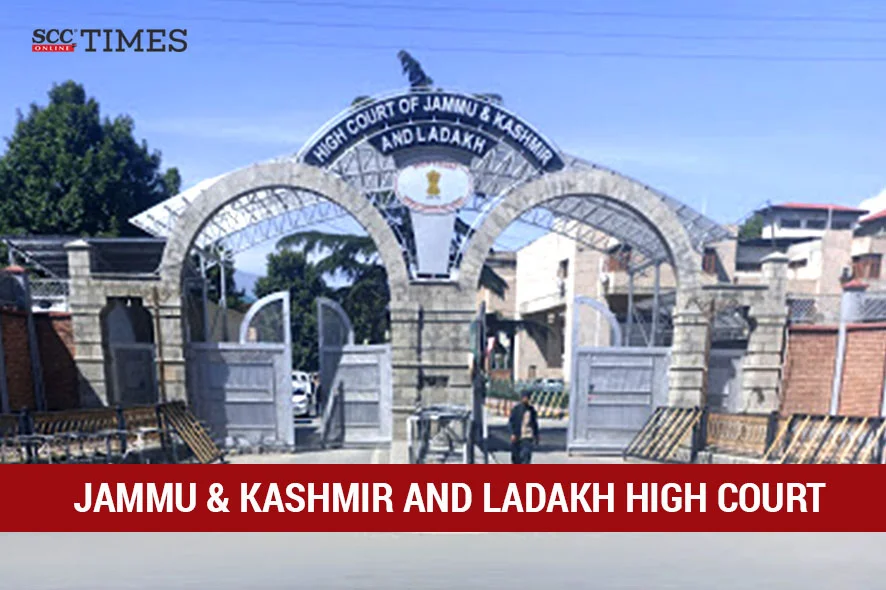Jammu and Kashmir High Court: In a 24-year-old assault case, a Division Bench of Sanjay Dhar* and Rajnesh Oswal, JJ., held that the principle “falsus in uno, falsus in omnibus” does not apply to Indian Courts and courts must separate reliable evidence from exaggerations. Despite discrepancies regarding injuries to others, the Court held that the evidence proved beyond reasonable doubt that accused/respondent 1 grievously injured complainant prosecution witness.
In the instant matter, on 05-04-2000, complainant prosecution witness suffered a grievous head injury allegedly caused by respondent 1, using a “Pathi” (sharp object) during a land dispute at Raika. The attack was reportedly part of a larger altercation involving accused and others trespassing with axes and clubs, resulting in additional minor injuries to other witnesses. An FIR was filed under Sections 307, 326, 324, 336, 337, 447, and 448 of the Ranbir Penal Code, 1860 (RPC) and the evidence included witness statements, medical reports, and recovery of the alleged weapon.
The trial court acquitted all respondents due to inconsistencies in prosecution witness testimonies and lack of corroboration of injuries to witnesses other than complainant. The State filed the present appeal by challenging the acquittal and emphasised on the trial court’s disregard for corroborated testimony regarding grievous injury to complainant.
The Court noted that the complainant prosecution witness is consistent with his statement that respondent 1 attacked him with a Pathi, causing a grievous head injury. The Court noted that the medical evidence corroborated with complainant prosecution witness’s claim (fracture on occipital bone) and stated that the injury received by prosecution witness on his left temporal region in front of the ear is grievous in nature, whereas the other injury is simple in nature and both these injuries are possible by a sharp object. The Court noted that no other accused was implicated in this assault. The Court also noted that the statements of other prosecution witnesses regarding injuries were inconsistent and uncorroborated.
The Court asserted that “the statement of an injured has to be given due credence while appreciating the evidence and reaching a particular conclusion, but then, when there are material contradictions in the statements of the injured and it is proved that there was previous enmity between the injured and the alleged assailants, the Court has to carefully scrutinize the statements of injured in such type of cases.”
The Court stated that in the present case exaggeration by prosecution witnesses due to prior enmity undermined other charges, moreover, absence of the weapon recovery witnesses also weakened the case for a dangerous weapon. The Court relied on consistent testimony and medical evidence for the grievous injury, but did not find any ground to interfere with the finding of the trial Court in relation to infliction of injuries by respondents/accused upon prosecution witnesses.
The Court noted that the trial court by disbelieving the whole testimony of these witnesses and ignoring the testimony of complainant prosecution witness, which is corroborated by the medical report, has fallen into a grave error. The Court applied the principle of separating reliable evidence from unreliable and stated that the principle of “falsus in uno, falsus in omnibus” does not apply in India.
“The job of the Court is to discard that portion of the evidence which appears to be unreliable and while doing so, that part of testimony of the witnesses, which is reliable and is corroborated by other circumstances in the case, has to be relied upon.”
The Court partly allowed the conviction of accused under Section 325 RPC for causing grievous hurt to the complainant prosecution witness and acquitted him of other charges. Due to prolonged prosecution (24 years), the Court indicated leniency in sentencing and sentenced the respondent No.1/accused to suffer rigorous imprisonment for a period of one month and to pay a fine of Rs.10,000 which shall be paid to the injured and if he is no longer alive, to his next of kin.
[State of J&K v. Showkat Ali, 2024 SCC OnLine J&K 937, Decided on 11-11-2024]
*Judgment by Justice Sanjay Dhar
Advocates who appeared in this case :
Mr. Amit Gupta AAG, Counsel for the Appellant
Mr. S.M. Chowdhary, Counsel for the Respondents







